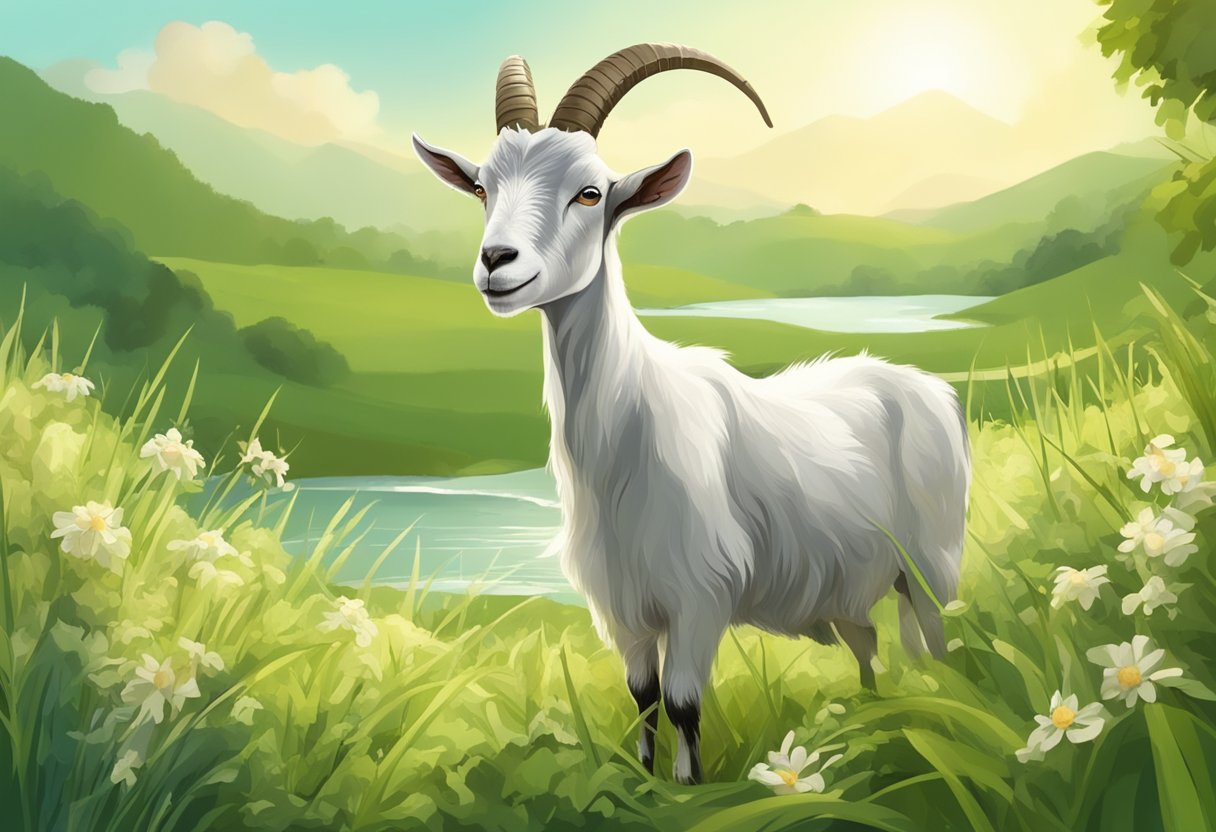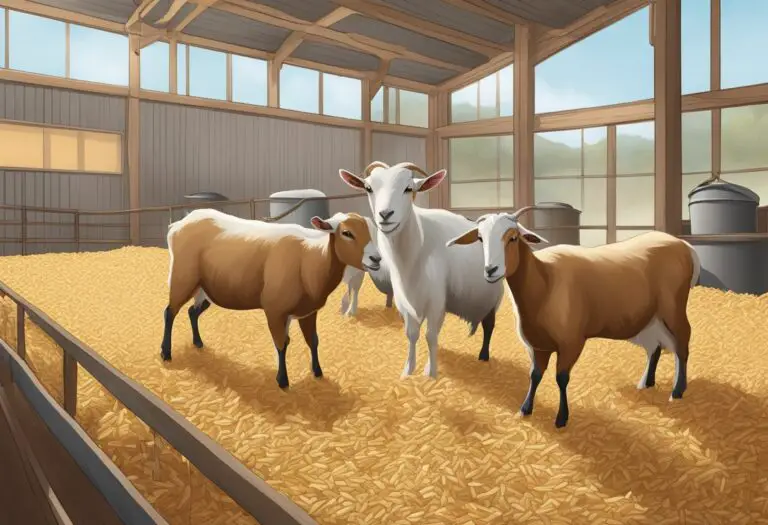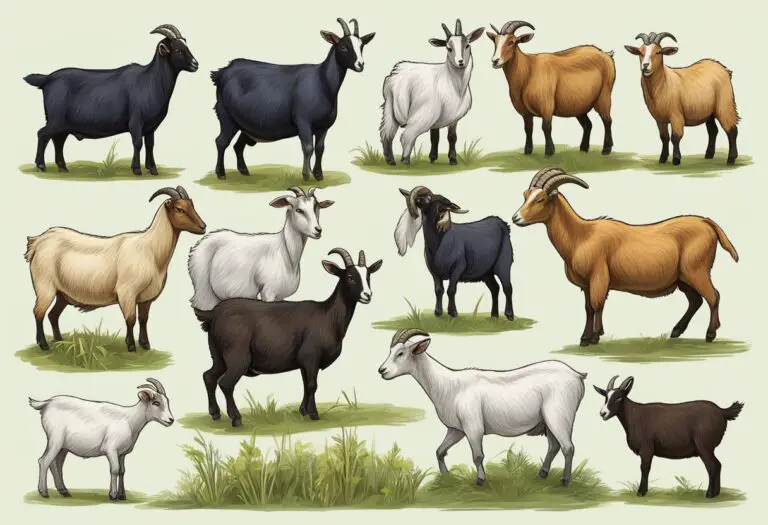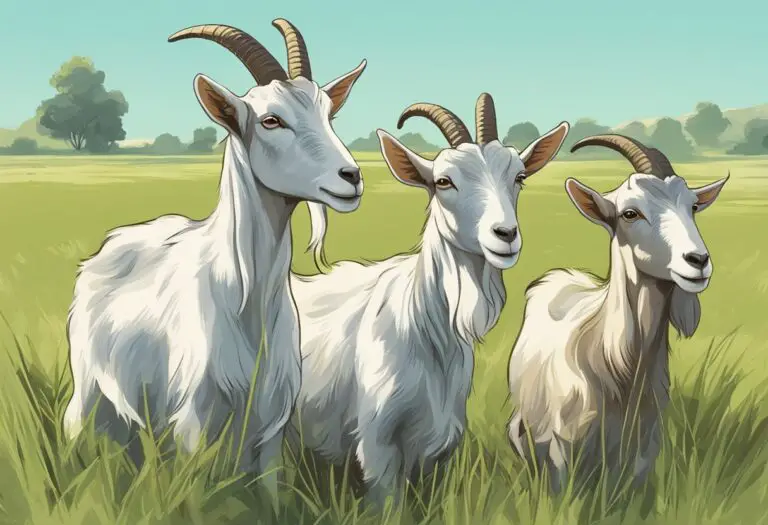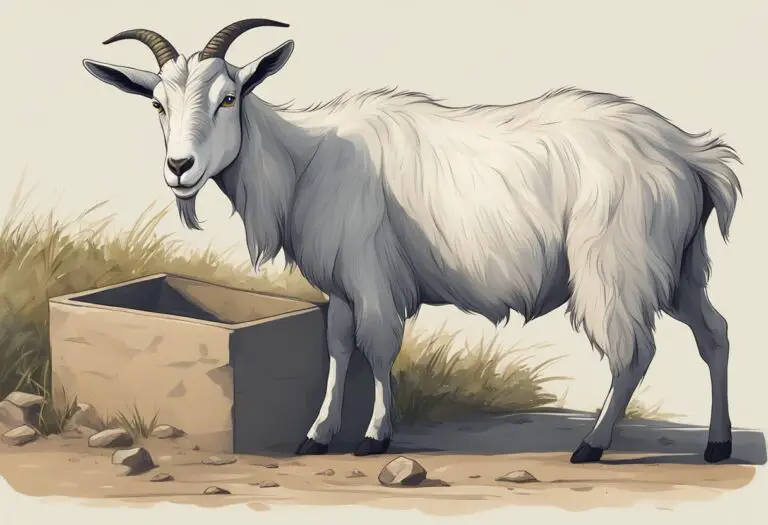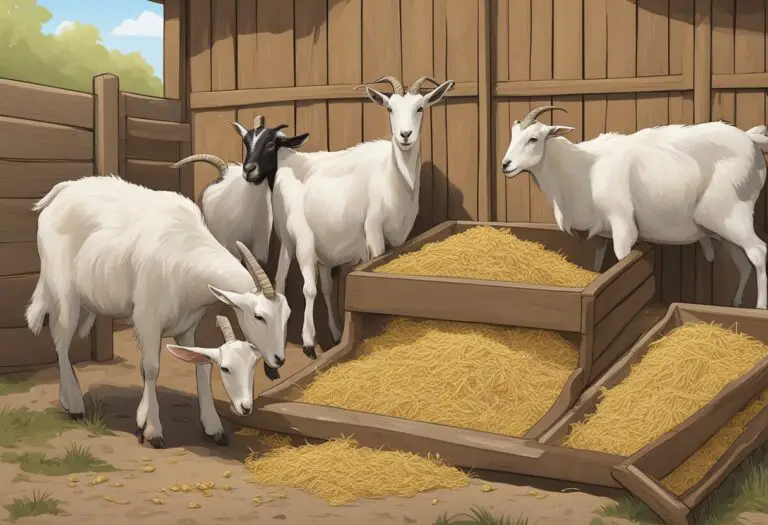Importance of Goat Nutrition for Milk Production
Goats have been domesticated for thousands of years, primarily for their milk, meat, and wool. In recent years, there has been an increasing demand for goat milk due to its nutritional value and health benefits. As a result, goat farmers are paying more attention to the nutrition of their goats to optimize milk production. The question remains, is goat nutrition important for milk production?
The answer is a resounding yes. Just like any other animal, goats require a balanced diet to maintain health and produce milk. A balanced diet for a lactating goat should consist of high-quality forages, such as alfalfa or clover, and a grain mix that contains essential nutrients like protein, vitamins, and minerals. The amount and type of feed will vary depending on the goat’s age, weight, and milk production level. In addition, goats should have access to clean water and mineral supplements to ensure optimal health and milk production.
Fundamentals of Goat Nutrition

Goat nutrition is a critical factor in milk production. Proper nutrition is essential for the health and well-being of the animal and for the quality and quantity of milk produced. In this section, we will discuss the fundamentals of goat nutrition, including macronutrients, micronutrients, and water requirements.
Macronutrients
Macronutrients are the nutrients that goats require in large quantities. These include carbohydrates, proteins, and fats. Carbohydrates are the primary source of energy for goats, and they are found in grains, hay, and pasture. Proteins are essential for growth and milk production, and they are found in legumes, grains, and forages. Fats are also an important source of energy for goats, and they are found in vegetable oils, animal fats, and some grains.
Micronutrients
Micronutrients are the nutrients that goats require in smaller quantities. These include vitamins and minerals. Vitamins are essential for various metabolic processes in the body, and they are found in fresh green forages, grains, and supplements. Minerals are also essential for various metabolic processes, and they are found in forages, grains, and supplements. Some common minerals required by goats include calcium, phosphorus, and magnesium.
Water Requirements
Water is the most critical nutrient for goats. It is essential for various metabolic processes in the body, including digestion, absorption, and elimination. Goats require clean and fresh water at all times, and they should have access to water 24/7. The amount of water required by goats varies depending on various factors, including age, weight, and milk production. As a general rule, goats require at least one gallon of water per day.
In conclusion, proper nutrition is critical for the health and well-being of goats and for milk production. Goats require a balanced diet that includes macronutrients, micronutrients, and water. By providing goats with a balanced diet, farmers can ensure that their animals are healthy, happy, and productive.
Impact of Nutrition on Milk Production

Quality of Milk
The quality of milk is directly influenced by the nutrition of the lactating doe. A well-nourished doe produces milk that is high in protein, fat, and other essential nutrients. The milk produced by a doe on a balanced diet is more nutritious, has a higher butterfat content, and has a better taste than the milk produced by a doe on a poor diet.
Quantity of Milk
Nutrition plays a vital role in the quantity of milk produced by the lactating doe. A doe that is well-nourished produces more milk than a doe that is malnourished. The amount of milk produced by a doe is directly correlated to her diet. A doe that is fed a balanced diet produces more milk than a doe on a poor diet.
Health of the Lactating Doe
The health of the lactating doe is also affected by her nutrition. A doe that is well-nourished is less likely to suffer from health problems such as mastitis, ketosis, and other metabolic disorders. A balanced diet provides the necessary nutrients for the lactating doe to maintain her health and produce milk.
In conclusion, nutrition plays a crucial role in milk production. A well-balanced diet is essential for the lactating doe to produce high-quality milk in large quantities while maintaining her health.
Feeding Strategies

Forage-Based Diets
Goats are ruminants and have the ability to digest fibrous plant material, such as hay and pasture. A forage-based diet is essential for the health and productivity of dairy goats. The quality and quantity of forage can affect milk production, as well as the overall health of the animal. It is recommended that goats have access to high-quality forage, such as alfalfa hay or pasture, at all times.
Supplemental Feeding
In addition to forage, dairy goats require supplemental feeding to meet their nutritional needs. Grain concentrates, such as corn, soybean meal, and oats, are commonly used to supplement a goat’s diet. The amount and type of concentrate fed depends on the individual goat’s needs, as well as the stage of lactation. A lactating doe may require more concentrate than a dry doe to support milk production.
It is important to note that overfeeding concentrates can lead to health problems, such as rumen acidosis and obesity. Therefore, it is recommended that concentrate be fed in small amounts multiple times a day, rather than in one large meal.
Feeding Frequency
Dairy goats should be fed at least twice a day to maintain milk production and prevent health problems. It is recommended that goats be fed at the same time each day to establish a routine. This routine can help prevent stress and maintain a healthy appetite.
In conclusion, proper feeding strategies are crucial for the health and productivity of dairy goats. A forage-based diet, supplemented with grain concentrates, and fed multiple times a day can help maintain milk production and prevent health problems.
Nutritional Management Across Lactation Stages

Early Lactation
During the early lactation stage, the nutritional requirements of lactating goats are high due to the increased demand for milk production. The energy and protein requirements of lactating goats are at their highest during this stage. Therefore, it is essential to feed them a diet that is rich in energy and protein.
Goats in early lactation should be fed a diet that contains 16-18% crude protein and 70-75% total digestible nutrients (TDN). This can be achieved by feeding them a combination of high-quality forages and concentrates. It is also important to provide fresh water and mineral supplements to ensure that the goats have access to all the essential nutrients they need.
Peak Lactation
During the peak lactation stage, the nutritional requirements of lactating goats are at their highest. The goats require a diet that is rich in energy, protein, and minerals to maintain their milk production. At this stage, the goats are producing the maximum amount of milk, and their nutritional requirements are at their peak.
Goats in peak lactation should be fed a diet that contains 18-20% crude protein and 75-80% TDN. The diet should be high in energy and should contain a combination of high-quality forages and concentrates. It is also important to provide fresh water and mineral supplements to ensure that the goats have access to all the essential nutrients they need.
Late Lactation
During the late lactation stage, the nutritional requirements of lactating goats decrease as milk production decreases. However, it is still important to provide the goats with a balanced diet that meets their nutritional requirements.
Goats in late lactation should be fed a diet that contains 14-16% crude protein and 65-70% TDN. The diet should be high in fiber and contain a combination of high-quality forages and concentrates. It is also important to provide fresh water and mineral supplements to ensure that the goats have access to all the essential nutrients they need.
In conclusion, nutritional management is crucial for the milk production of goats. Providing a balanced diet that meets the nutritional requirements of goats across different lactation stages is essential for maintaining their health and productivity.
Common Nutritional Deficiencies and Remedies

Goats require a well-balanced diet to produce high-quality milk. Nutritional deficiencies can lead to poor milk production and overall health problems. Here are some of the most common nutritional deficiencies in goats and their remedies.
Calcium
Calcium is crucial for milk production and maintaining strong bones. A deficiency in calcium can lead to milk fever, weak bones, and decreased milk production. To remedy this, goats should be given calcium supplements such as calcium carbonate or limestone. Additionally, feeding alfalfa hay, which is high in calcium, can help prevent deficiencies.
Phosphorus
Phosphorus is necessary for energy metabolism and milk production. A deficiency in phosphorus can lead to poor milk production, weak bones, and decreased appetite. To remedy this, goats should be given phosphorus supplements such as dicalcium phosphate or monocalcium phosphate. Feeding grains and legumes can also help prevent deficiencies.
Copper
Copper is essential for the absorption and utilization of iron, as well as for maintaining a healthy immune system. A deficiency in copper can lead to anemia, poor growth, and decreased milk production. To remedy this, goats should be given copper supplements such as copper sulfate or copper oxide. Feeding copper-rich foods such as sunflower seeds and oats can also help prevent deficiencies.
Vitamin D
Vitamin D is necessary for the absorption of calcium and phosphorus. A deficiency in vitamin D can lead to poor milk production, weak bones, and decreased immunity. To remedy this, goats should be given vitamin D supplements such as cholecalciferol or ergocalciferol. Additionally, exposing goats to sunlight can help prevent deficiencies.
In conclusion, ensuring that goats receive the proper nutrients is crucial for milk production and overall health. By addressing common nutritional deficiencies and providing remedies, goat farmers can maintain healthy and productive herds.
Monitoring and Adjusting Diets

Body Condition Scoring
Monitoring the body condition score (BCS) of goats is an essential part of ensuring optimal milk production. BCS is a numerical rating system that assesses the amount of body fat and muscle in an animal. A BCS of 1 represents an emaciated goat, while a BCS of 5 indicates an obese goat.
Goats with a BCS of 2.5-3.5 tend to produce the most milk, so it is important to monitor and adjust their diets accordingly. A BCS of less than 2.5 may indicate that the goat is not getting enough nutrition, which can lead to decreased milk production. On the other hand, a BCS of more than 3.5 may indicate that the goat is overfed, which can lead to health problems and decreased milk production.
Milk Composition Testing
Regular milk composition testing is another important tool for monitoring goat nutrition. Milk composition can vary depending on the goat’s diet, so testing can help identify any imbalances or deficiencies.
Testing can also help determine the ideal protein-to-fat ratio for a particular goat. This ratio can vary depending on the goat’s breed, age, and stage of lactation. Adjusting the diet to achieve the ideal protein-to-fat ratio can help maximize milk production and quality.
In conclusion, monitoring and adjusting goat diets is crucial for ensuring optimal milk production. Body condition scoring and milk composition testing are two effective methods for achieving this goal. By carefully monitoring and adjusting diets, goat farmers can help ensure healthy, productive goats and high-quality milk.
Role of Nutrition in Disease Prevention

Nutrition plays a crucial role in preventing diseases in goats. A balanced diet with all the essential nutrients can help to maintain a healthy immune system, which is necessary to fight off infections and diseases.
One of the most important nutrients for disease prevention is vitamin E, which acts as an antioxidant and protects the cells from damage caused by free radicals. Goats that are deficient in vitamin E are more susceptible to infections and diseases.
Another essential nutrient for disease prevention is selenium. Selenium is required for the production of glutathione peroxidase, an enzyme that protects the cells from oxidative damage. Goats that are deficient in selenium are at risk of developing white muscle disease, a condition that affects the muscles and can be fatal.
In addition to vitamins and minerals, goats also require adequate amounts of protein and energy to maintain a healthy immune system. A diet that is deficient in protein can lead to a weakened immune system, making goats more susceptible to infections.
Overall, proper nutrition is essential for disease prevention in goats. A balanced diet that includes all the essential nutrients can help to maintain a healthy immune system, reduce the risk of infections, and improve milk production.
Economic Aspects of Goat Nutrition

Goat nutrition plays a crucial role in milk production. It not only affects the quality and quantity of milk produced but also has economic implications for farmers. Proper nutrition can increase milk production, which in turn can lead to higher profits.
One of the most important economic aspects of goat nutrition is the cost of feed. Goats require a balanced diet that includes roughage, concentrates, and minerals. The cost of feed can vary depending on the region, season, and availability of feed. Farmers need to carefully balance the cost of feed with the benefits of increased milk production.
Another economic aspect of goat nutrition is the cost of supplements and additives. Supplements and additives such as probiotics, prebiotics, and enzymes can improve digestion and increase milk production. However, these supplements and additives can be expensive, and farmers need to weigh the cost against the benefits.
Proper nutrition can also reduce veterinary costs. Goats that are well-nourished are less likely to develop health problems, which can lead to lower veterinary bills. Additionally, goats that are well-nourished have a stronger immune system, which can reduce the need for medications and antibiotics.
In conclusion, goat nutrition is an important factor in milk production and has economic implications for farmers. Proper nutrition can increase milk production, reduce veterinary costs, and improve the overall health of the herd. Farmers need to carefully balance the cost of feed and supplements with the benefits of increased milk production.

